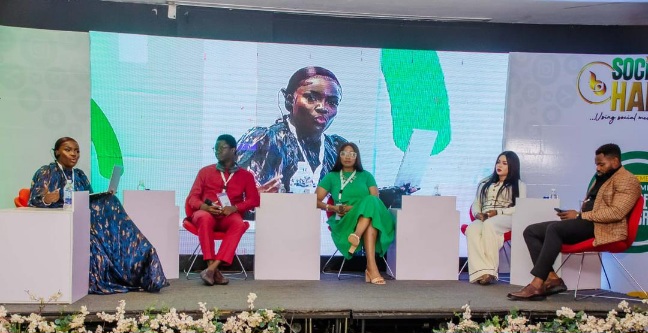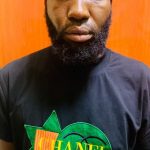...To get all news updates, Join our WhatsApp Group (Click Here)
Also Join our WhatsApp Channel (Click Here)
The 4th edition of the Bodex Social Media Hangout, held at the prestigious Radisson Blu Ikeja, Lagos on 21st October 2023, brought together an ensemble of digital experts, thought leaders, and social media enthusiasts for an event that left a profound mark on the ever-evolving digital landscape.
Themed ‘Social Media: Hope or Hubris,’ the event explored the evolution of social media, transforming from its early days as a platform for personal connections to the complex landscape it has become today. Attendees had the exclusive opportunity to engage with a remarkable lineup of top-tier digital experts who shared their invaluable insights on various digital topics.
The driving force behind the Bodex Social Media Hangout, the esteemed convener Bodex Hungbo, commenced the event with a thought-provoking narrative. She recounted the fascinating journey of social media from its inception to its current role in society, highlighting its original purpose: “to bring sanity to netizens” through the annual gathering of experts.
Guest speaker Mr. Gbenga Omotoso, Lagos State Commissioner of Information and Strategy, shared his insights on how social media has emerged as the new leader, accelerating communication in an interactive and effective manner, surpassing the limitations of traditional media. His compelling discussion resonated with attendees, emphasizing the significance of this dynamic medium.
Keynote speaker Obi Asika, the founder of Omniverse, captivated the audience by shedding light on the astounding growth of Nigerian influencers in the digital space, amassing billions of followers on social media platforms. His perspective underscored the global impact of Nigerian content creators.
Ray Sharma, lead partner at Global Tech and a seasoned investor, delivered an engaging talk on the rapid growth of social media platforms. He pointed out that Instagram took two and a half years to reach a hundred million users, TikTok achieved this feat in just nine months, and ChatGPT, a testament to cutting-edge technology, took a mere month to reach a hundred million users.
The head Mass Media Writing Department School of Media Communication at Pan-Atlantic University Dr. Chike Mgbeadichie also gave a compelling speech on the importance of cultural competence in content creation. He emphasised the inevitable need for cross-cultural knowledge and skills in creating content that respects the cultural and religious sensitivities of others.
Izzi Boye who is into smartphones maximization also taught some hidden features on smartphones leaving the audience jaw dropping as they never knew such features existed on their phones.
The Bodex Social Media Hangout 4.0 also featured three enlightening panel sessions where savvy panelists shared insights on different topics. Moderated by Ekezue Anthonia Ezenwa, the first panel featured Dr. Morayo Brown, Victor Ogunyinka, Ekemini Ekerette, and Elsie Godwin, discussing how social media can inspire hope for individuals in today’s turbulent times.
The second panel, moderated by Mercy Frank, featured Hon Gbenga Omotoso, Charles Olojede, Mariam Bakre, and Taiwo Adeyemi sharing their informed opinions on the essentiality of digital media in various sectors, including business, governance and citizenship participation.
Moderated by Lanre Basamta, the third panel featured JJ Omojuwa, Olubiyi Tudors Ogunbiyi, Naijabrandinfluencer and Dami Adenuga dispensing enlightening thoughts on the prospects of social media for economic empowerment. All sessions proved engaging with remarkable takeaways for the audience.
Overall, the Bodex Social Media Hangout 4.0 succeeded in fostering a renewed commitment to using social media as a force for good, emphasizing responsible engagement, and highlighting the incredible potential it offers for both personal and professional growth.
You can get every of our news as soon as they drop on WhatsApp ...To get all news updates, Join our WhatsApp Group (Click Here)
Also Join our WhatsApp Channel (Click Here)

















